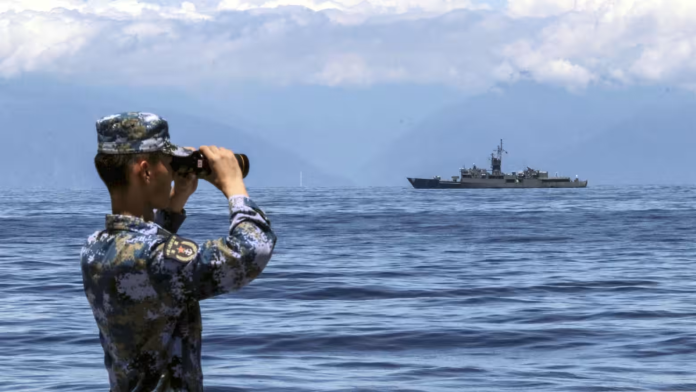Taiwan’s Premier Cho Jung-tai said his government was “prepared” for China’s plans to launch military exercises, according to Radio Free Asia.
The drills could begin around 10 October, Taiwan’s national day. Security officials stated that Beijing would likely hold the drills near Taiwan as a demonstration of force as President Lai Ching-te delivered a keynote speech on the national day of the Republic of China, Taiwan’s official name. He is expected to reaffirm the island’s sovereignty and the right of the Taiwanese people to decide their future.
According to Reuters, Taiwan’s defence ministry claimed that China used various reasons to “legitimise its targeted military drills.”
We continue to monitor and analyze the training dynamics of the Chinese communists around the Taiwan Strait in order to anticipate the situation.
The upcoming exercise will be called Joint Sword-2024B, according to Taiwanese officials.
Taipei would reinforce its defences ahead of the national day. Premier Cho expressed hope that China would show restraint and avoid actions “that disrupt regional security and security in the Indo-Pacific region.”
The prime minister said he would ask the military to gather information about China’s satellite launch, expected on Thursday, and make sure it would not pose a threat to the public.
Grey-zone tactic
Meanwhile, the US State Department said that “using routine annual celebrations or public remarks as a pretext or excuse for provocative or coercive measures undermines peace and stability” in the Taiwan Strait region.
Taiwan’s defence ministry reported that China would launch a satellite launch vehicle (SLV) from the Xichang satellite launch centre in Sichuan province on Thursday. The SLV would head east to the western Pacific Ocean, passing through Taiwan’s air defence identification zone (ADIZ), the ministry added.
The Chinese military conduct regular incursions into Taiwan’s ADIZ as part of the so-called grey-zone tactic to put pressure on Taipei. Actions in the grey zone are generally not overt acts of war, but are considered detrimental to the country’s security.
